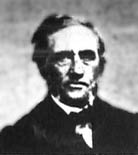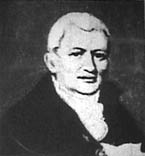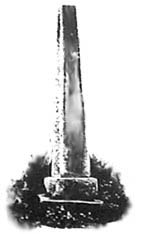
Rev. George E. Felton.
|
There must have been a reap growth of the population, if the enlistment for troops for the Indian wars is suggestive, although the town itself was never in danger from the red men, despite the establishment of garrisons and the erection of houses which much resembled forts.

Hon. Oliver Phelps.
|

The Jubilee Monument.
|
The soil brought forth abundantly during the early years of the settlement; game was plentiful, and the remarkable purity of the air and water secured a healthy growth, which was little retarded by the epidemics of smallpox, spotted fever, or "camp distemper," which swept away many in the sad years of their prevalence.
The great central fact in the history, of course was the church. There were several pastors during the first fifty years, men of peculiar ability some of them, and each of them leaving some trace of his individuality behind him when his ministry closed. The first of those was Moses Tuttle, who began his work in connection with the "Great Awakening," which followed the tour of Whitefield and Jonathan Edwards, as these two great preachers went through western Massachusetts putting spirit into the dry bones. Mr. Tuttle gave half an acre of ground for the meeting-house, his salary for two years, and what was his for preaching before his ordination, the whole amounting to £863, old tenor, this gift being the
— page 100 —